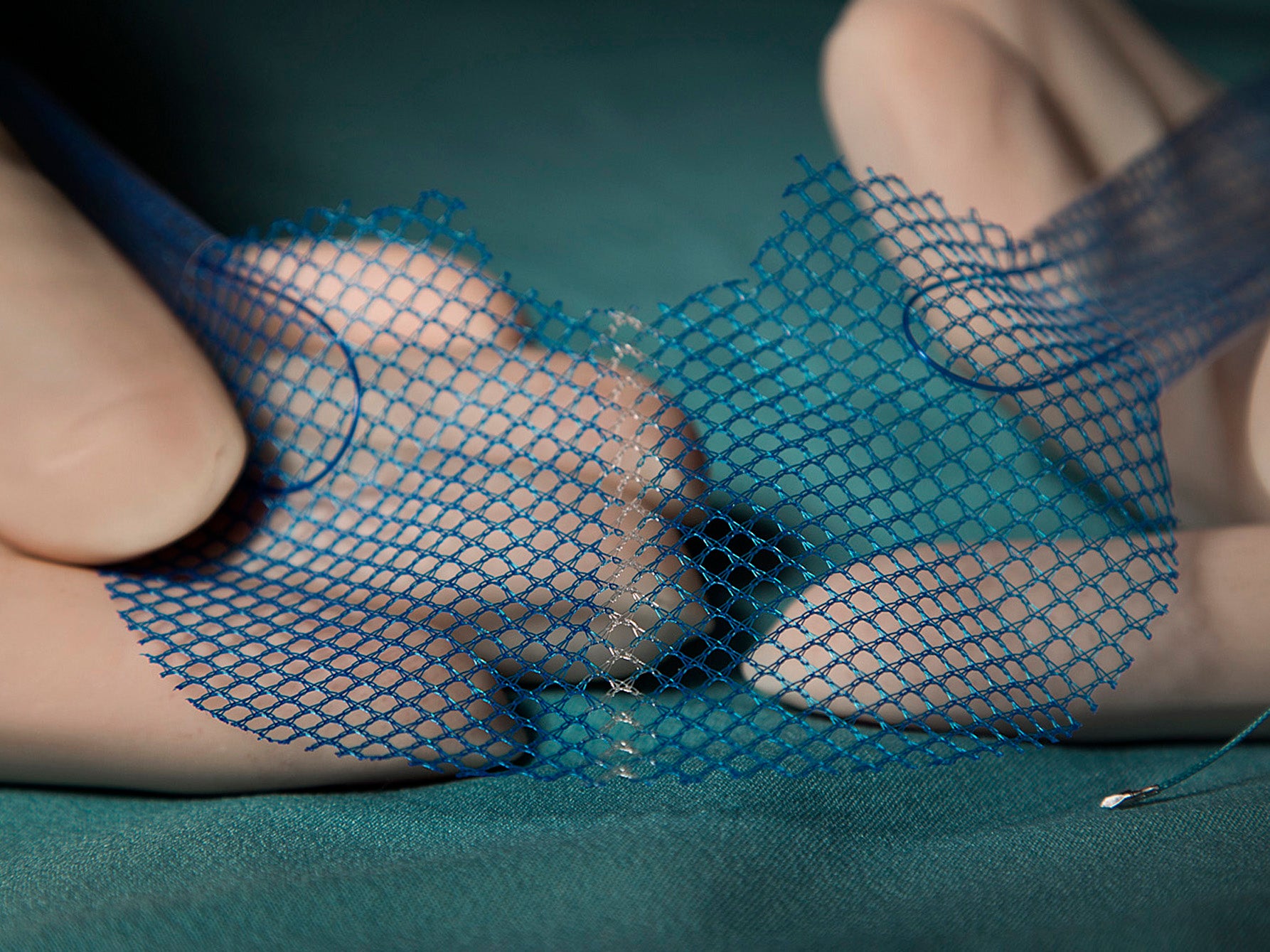Vaginal mesh: New generation of women at risk of controversial procedure, campaigners warn
'They are so weak, they clear the way for the next generation of women to be harmed,' campaigner says

Your support helps us to tell the story
From reproductive rights to climate change to Big Tech, The Independent is on the ground when the story is developing. Whether it's investigating the financials of Elon Musk's pro-Trump PAC or producing our latest documentary, 'The A Word', which shines a light on the American women fighting for reproductive rights, we know how important it is to parse out the facts from the messaging.
At such a critical moment in US history, we need reporters on the ground. Your donation allows us to keep sending journalists to speak to both sides of the story.
The Independent is trusted by Americans across the entire political spectrum. And unlike many other quality news outlets, we choose not to lock Americans out of our reporting and analysis with paywalls. We believe quality journalism should be available to everyone, paid for by those who can afford it.
Your support makes all the difference.New guidelines on the use of vaginal mesh could expose a fresh generation of women to harm by not imposing greater restrictions on the controversial procedure, campaigners have warned.
Advice published by the National Institute for Health and Care Excellence (Nice) recognised there is public concern surrounding the use of mesh procedures.
However, it said there was “some evidence of benefit” for using surgery – including mesh – to manage stress urinary incontinence or pelvic organ prolapse.
The guidelines state there is “limited evidence” on potential long-term harms caused by the procedure.
However, the new advice did recommend women with stress urinary incontinence or pelvic organ prolapse are first asked to consider non-surgical options.
Labour MP Owen Smith, chairman of the All Party Parliamentary Group on Surgical Mesh, said the guidelines did not go far enough in acknowledging the “terrible problems” some women had faced following mesh surgery.
“While I am pleased that Nice is now advising against mesh as a first-line treatment for incontinence, the new guidelines fail to clearly outline that mesh should only be used once conservative methods have failed and when non-mesh surgery has failed,” he added.
Kath Sansom, of campaign group Sling The Mesh, said she was “appalled and claimed new guidelines were virtually indistinguishable from those issued in 2003.
“They are so weak, they clear the way for the next generation of women to be harmed,” she said. “We told our stories and Nice ignored us.”
Vaginal mesh is a net-like implant used to provide additional support for damaged organs or treat incontinence.
However, large numbers of women in the UK have reported serious side effects as a result of the surgery, with more than 800 taking legal action against the NHS over the surgery.
Potential side effects from implants include painful sexual intercourse for both men and women, urinary and bowel problems and pain in the back, abdomen or pelvic regions.
The UK government suspended certain mesh procedures in July until certain conditions were met, although the surgery is still sometimes available under a “high vigilance” programme.
A Department of Health and Social Care (DHSC) spokeswoman said: “We know that for some people mesh has had some unwanted and serious consequences. Mesh will still be a treatment for some women who understand the risks and following discussions with their consultant.”
But campaigners are concerned the new guidelines do not fully recognise the perceived dangers of the surgery, with the suggestion there is little evidence for negative long-term effects of mesh causing particular anger.
Ms Sansom told The Independent there was a “black hole” in the medical database because, in the past twenty years of mesh use, doctors tended to only ask about incontinence in the post-op consultations.
A woman could have lost her job, marriage and sex life but was considered a success for not wetting herself,” she added.
Join our commenting forum
Join thought-provoking conversations, follow other Independent readers and see their replies
0Comments